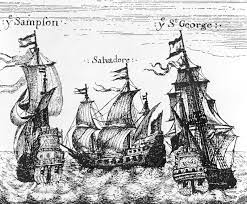England Navigation Acts – 2022 Best answer .

England Navigation Acts. The first text associated with this exam (Susan Previant Lee and Peter Passell. 1979.
England Navigation Acts – The American colonies.
Answer these 4 questions, each 200 words. So, in the first text associated with this exam (Susan Previant Lee and Peter Passell. 1979. A Answer these 4 questions, each 200 words. The first text associated with this exam (Susan Previant Lee and Peter Passell. 1979. A New Economic View of American History. New York, NY: W.W. Norton, pp. 30-35), you are given a description of England’s Navigation Acts and a discussion of how burdensome these Acts were for the American colonies.
On page 31, Lee and Passell note that “this burden must be weighed against the benefits accruing to colonial shipowners if one is to computer the net impact on the colonial economy”.
England Navigation Acts – The American colonies.
While Lee and Passell have interests in the net effects, can you use the content of our theme on institutions (week 3) to explain if there are other reasons for why we would have interests on who gains from such an Act? Secondly, in the second text associated with this exam, you are given a passage from an old publication (1853. Debow’s Review, Agricultural, Commercial, Industrial Progress and Resources, pp. 178-179).
The England navigation acts are explained in brief via this video: https://www.youtube.com/watch?v=p6v9Q1BWEyk. The source of the video is NBC News learn. The video can also be watched below:
https://www.youtube.com/watch?v=p6v9Q1BWEyk
The text refers to the production of cotton in Trinidad in the 1850s and how… Even though the slaves had been freed, the colony was failing to meet its potential. The author argued that it was a good idea to convince superior workers from the US and Barbados to come to Trinidad to farm cotton.
England Navigation Acts – The American colonies.
The underlined passages speak to the “apathetic” peasantry of Trinidad (what the author refers to the as “the present free negro population”) that is not good for farming cotton. Also, from the perspective of what we discussed in theme 2 regarding the rationality of economic actors, how would an economist/economic historian treat the claim of an “apathetic and lazy” peasantry? Thirdly, in the third text associated with this exam (Jeffrey R. Hummel. 2018. Benefits of the American Revolution: An Exploration of Positive Externalities.).
The author questions articles that came out in the summer of 2018 celebrating the American Revolution. Also, the author suggests that the Revolution was rife with “positive externalities”.
Additional Files







